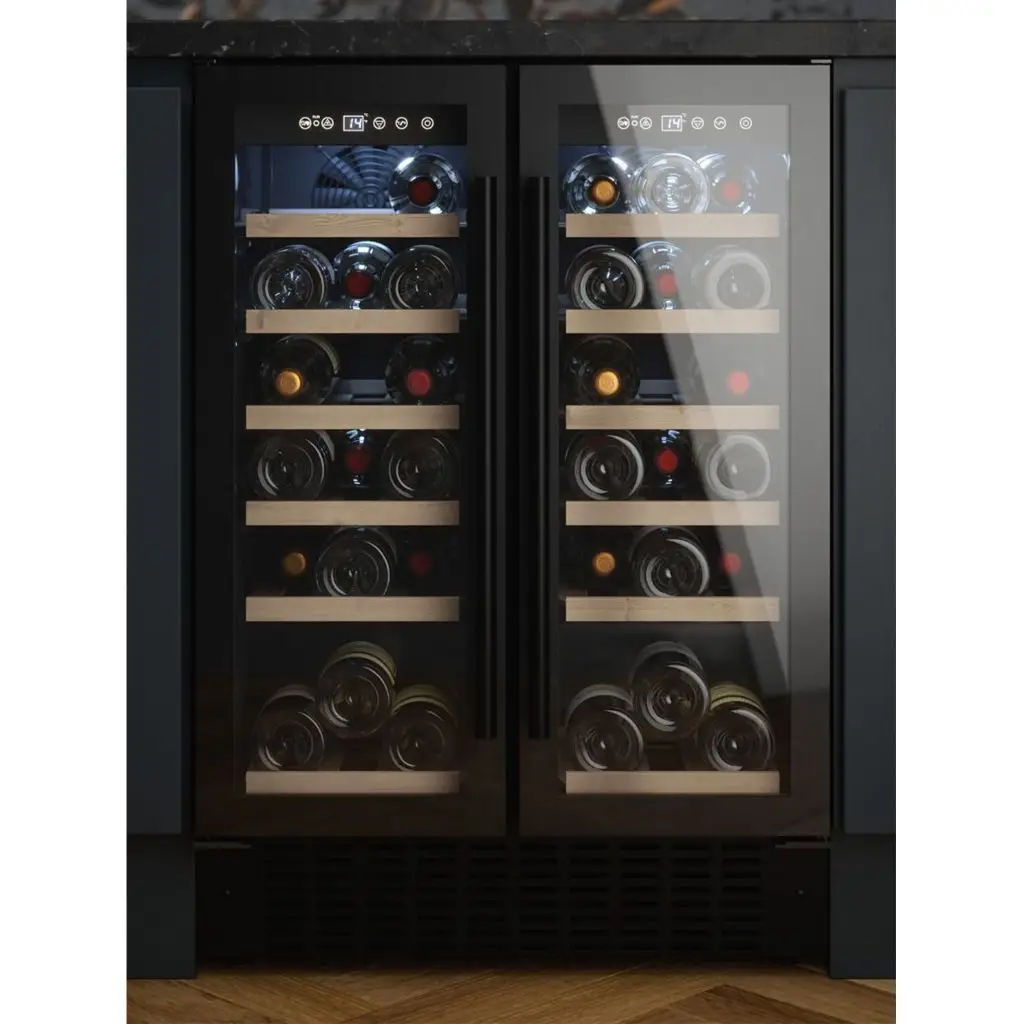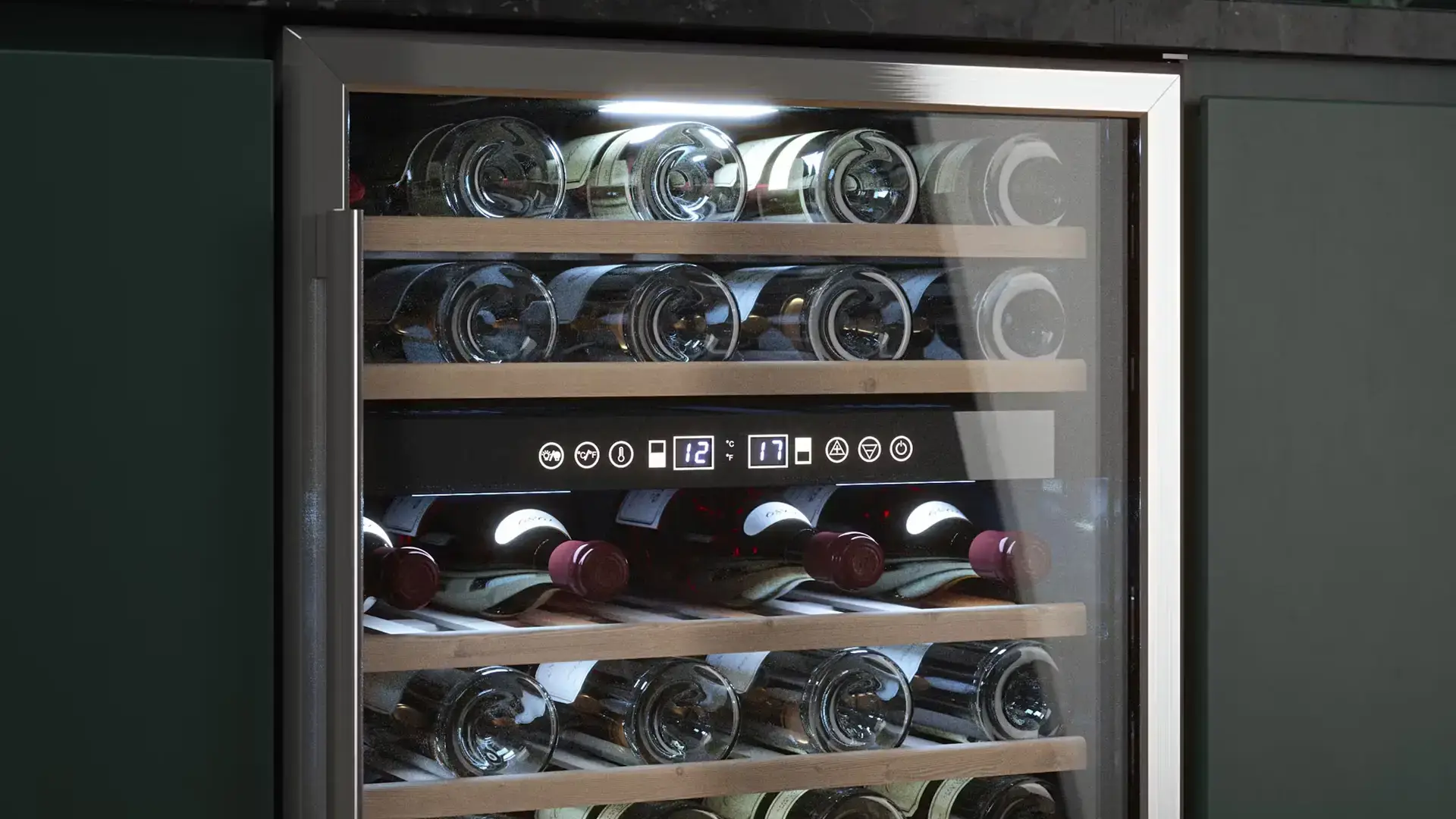
What is a Wine Cooler?
If you’ve ever wondered what a wine cooler is, you’re not alone. A wine cooler, also known as a wine fridge or wine cabinet, is a specially designed appliance for storing wine at the ideal temperature and humidity. Unlike a standard refrigerator, a wine cooler provides precise control of temperature, humidity, and vibration, all of which are essential for preserving your wine’s flavour and quality.
Why Use a Wine Cooler?
Why a wine cooler protects your collection
Wine is sensitive to heat, light, and changes in temperature. A wine cooler gives your bottles the stable environment they need to mature properly and taste their best.
-
Optimal temperature control
Keep wine at the ideal serving or ageing temperature (usually 5–18°C, depending on the type).
-
Stable humidity
Prevents corks from drying out, stopping unwanted oxidation.
-
Vibration reduction
Reduces movement that can disturb sediment and alter flavour.
-
UV protection
UV-resistant doors shield wine from harmful light exposure.
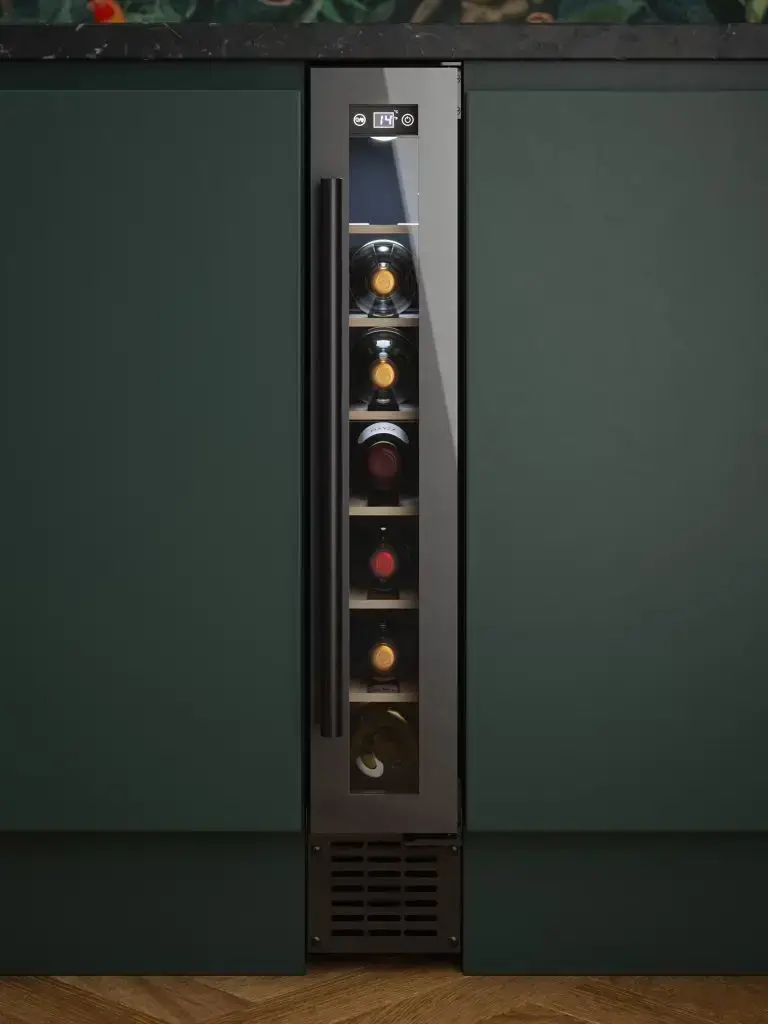
Types of Wine Coolers
When browsing for a wine cooler, you’ll find several types designed to suit different spaces, collections, and kitchen layouts.
-
Freestanding wine coolers
Offer flexible placement anywhere in your kitchen or home.
-
Built-in wine coolers
Designed to slot into kitchen cabinetry for a seamless, modern finish.
-
Dual-zone wine coolers
Provide two temperature zones, perfect for storing red and white wines together at their ideal conditions.
-
Single-zone wine coolers
Maintain one consistent temperature throughout, ideal for collections focused on a single wine type.
How Does a Wine Cooler Work?
How wine coolers keep your bottles perfectly chilled
Wine coolers use one of two core cooling technologies. Each works differently, offering unique benefits depending on the size of your collection and where the cooler will be placed.
Thermoelectric wine coolers
Use an electronic cooling module that delivers low-vibration, quiet cooling — ideal for smaller collections or peaceful spaces.
Compressor wine coolers
Operate like a traditional fridge using a compressor system, offering strong, consistent cooling for larger wine collections.
Most modern models also include features such as adjustable shelves, digital temperature controls, and LED interior lighting — making them both practical and stylish additions to any home.
Thermoelectric wine coolers
Use an electronic cooling module that delivers low-vibration, quiet cooling — ideal for smaller collections or peaceful spaces.Compressor wine coolers
Operate like a traditional fridge using a compressor system, offering strong, consistent cooling for larger wine collections.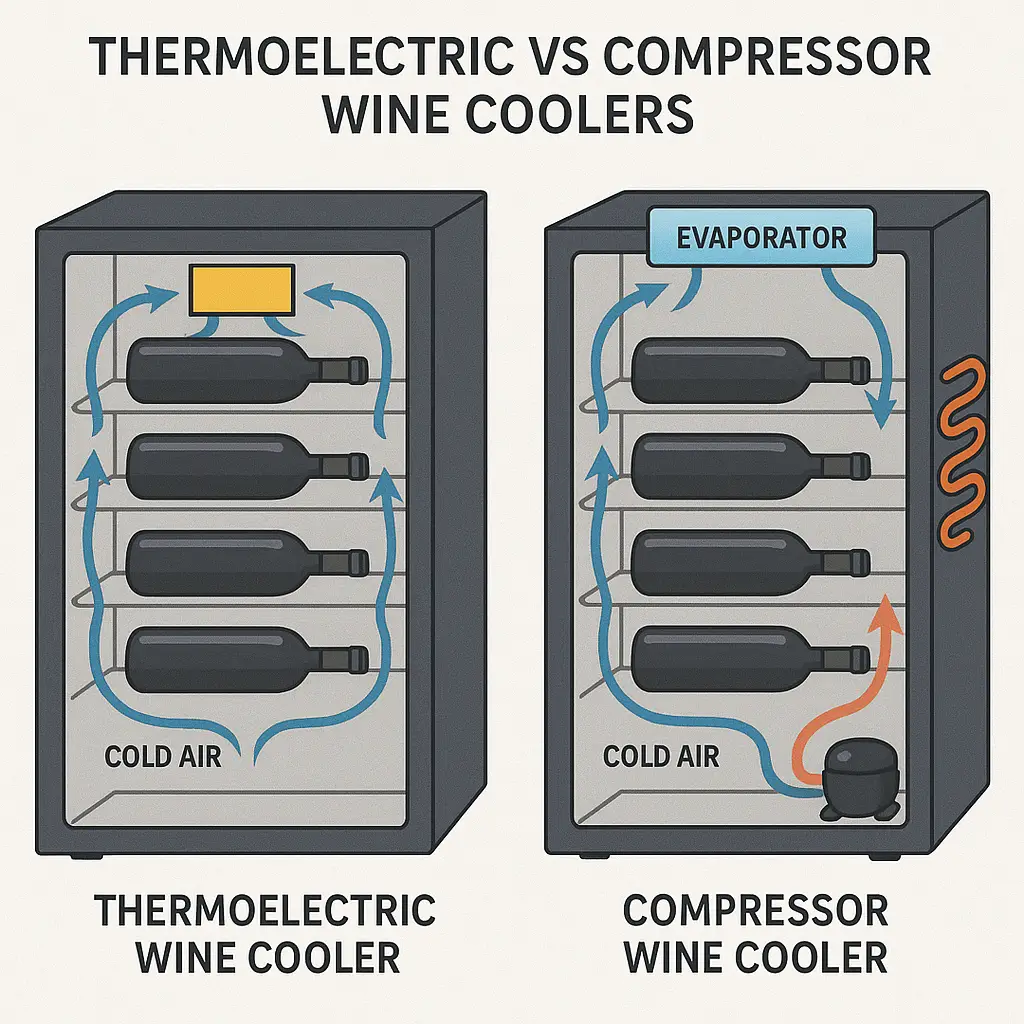
Wine Cooler vs Wine Cellar: What’s the Difference?
A wine cooler is a compact, appliance-based solution for storing wine at the perfect serving or short-term ageing temperature. In contrast, a wine cellar is a larger, usually room-sized, space for long-term wine storage and ageing, with more advanced climate control.
For most wine enthusiasts, a wine cooler offers the perfect balance of convenience, capacity, and affordability.
How to Choose the Best Wine Cooler
Key things to consider before buying a wine cooler
Capacity
Consider how many bottles you want to store now — and how your collection may grow.
Size & fit
Measure the space carefully, especially if you’re choosing a built-in model.
Temperature zones
Select dual-zone cooling if you enjoy storing both red and white wines.
Energy efficiency
Look for energy-rated models to help reduce long-term running costs.
Style & finish
Choose a design that suits your kitchen layout or living space aesthetic.
Consider how many bottles you want to store now — and how your collection may grow.
Measure the space carefully, especially if you’re choosing a built-in model.
Select dual-zone cooling if you enjoy storing both red and white wines.
Look for energy-rated models to help reduce long-term running costs.
Choose a design that suits your kitchen layout or living space aesthetic.
Frequently Asked Questions
- All Posts
- Cooker Hood Guides & Advice
- Dishwasher Guides & Advice
- General Appliance Guides & Advice
- Hob Guides & Advice
- Laundry Guides & Advice
- Microwave Guides & Advice
- Oven Guides & Advice
- Wine Cooler Guides & Advice
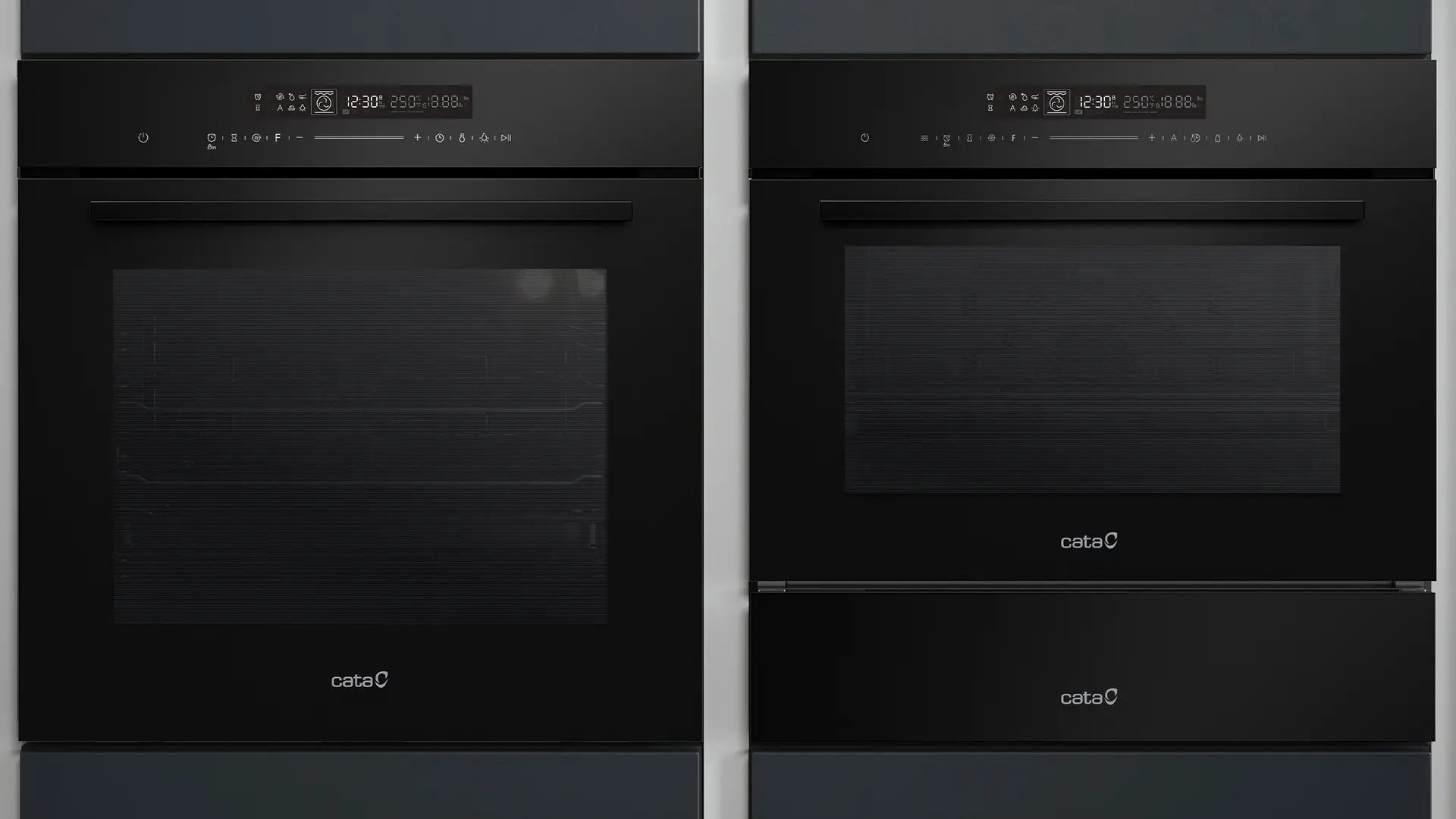
Learn why appliance warranties are essential for peace of mind and savings. CATA offers 5 years parts and up to...
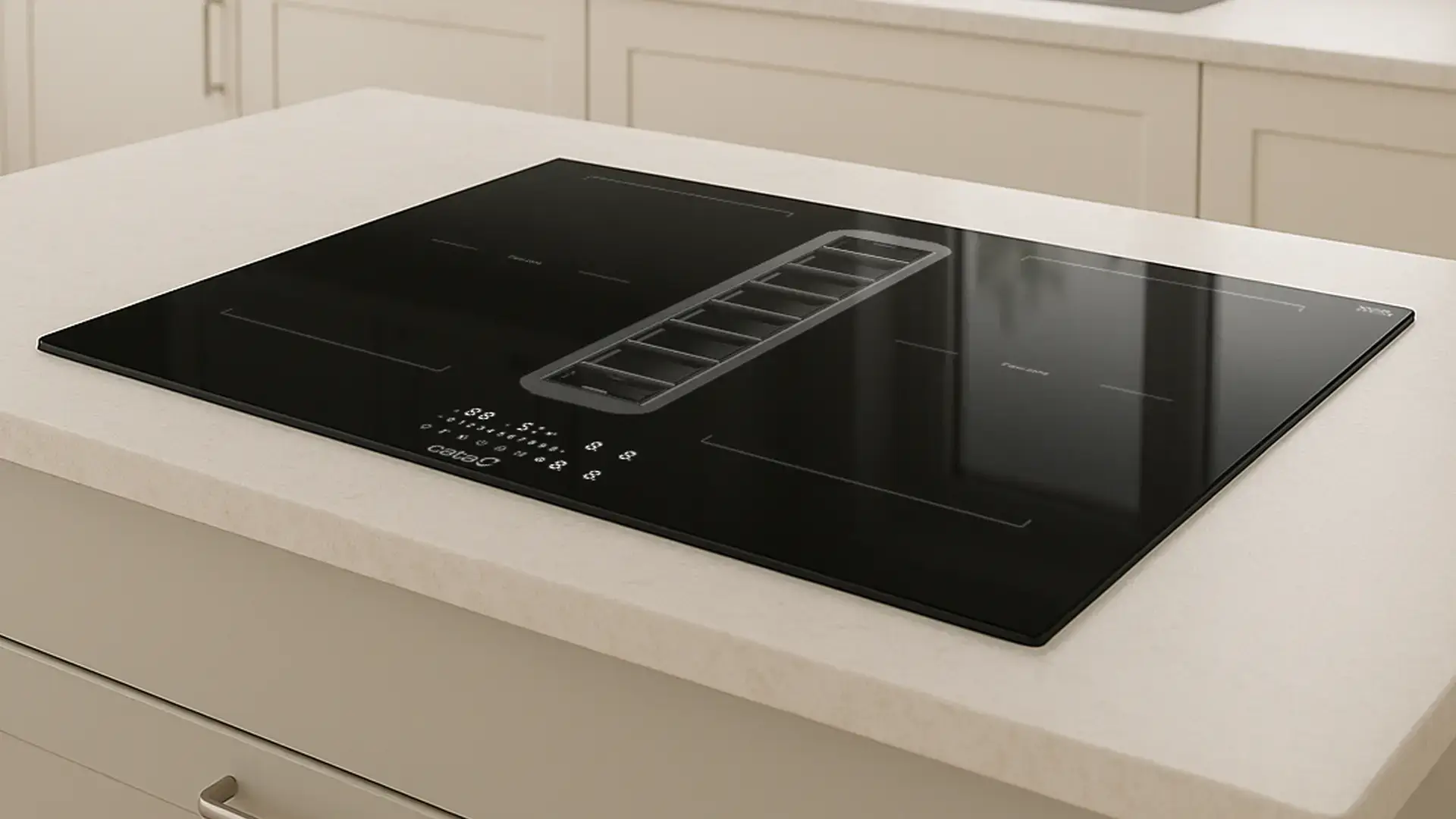
Discover if vented induction hobs are the future of kitchen ventilation. Explore benefits, trends, and expert insights - find out...

Confused about cooker hoods? Discover which type is best for your kitchen with this easy guide. Compare styles, features &...
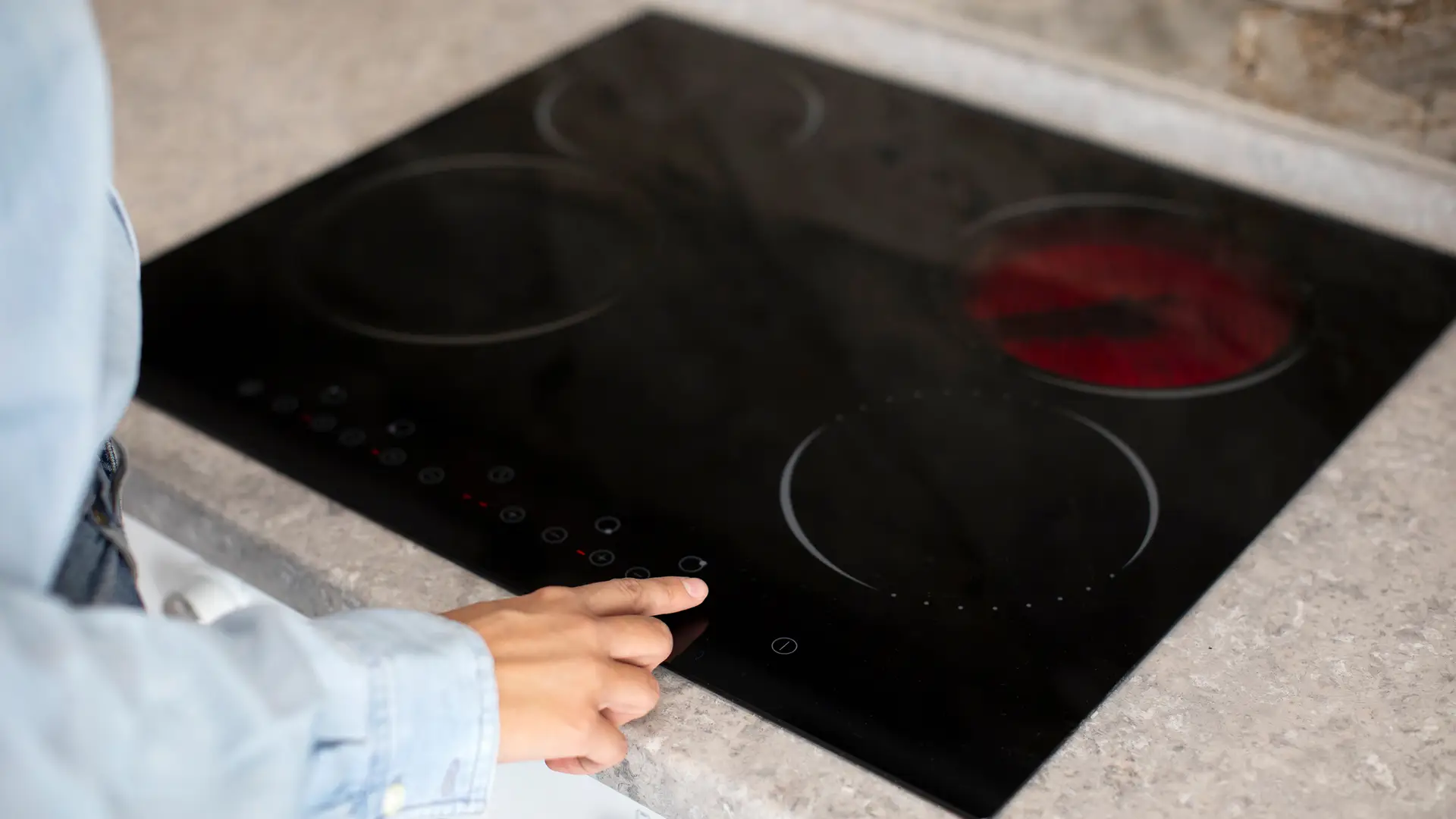
Discover everything about ceramic hobs in our go-to guide. Learn how they work, their benefits, and how to care for...

Discover the quietest cooker hoods for open-plan kitchens. Learn how to choose low-noise extraction while keeping your space fresh and...

Discover simple tips to stop your washing machine smelling musty. Keep it clean, fresh, and efficient — follow our quick...

Learn what freezer burn is, how to prevent it, and keep your food fresher for longer. Follow these simple tips...

Discover what a wine cooler is, how it works, and why it’s essential for wine lovers. Learn to choose the...

Keep your extractor running efficiently. Learn how to clean and replace cooker hood grease filters with our step-by-step guide. Quick...
